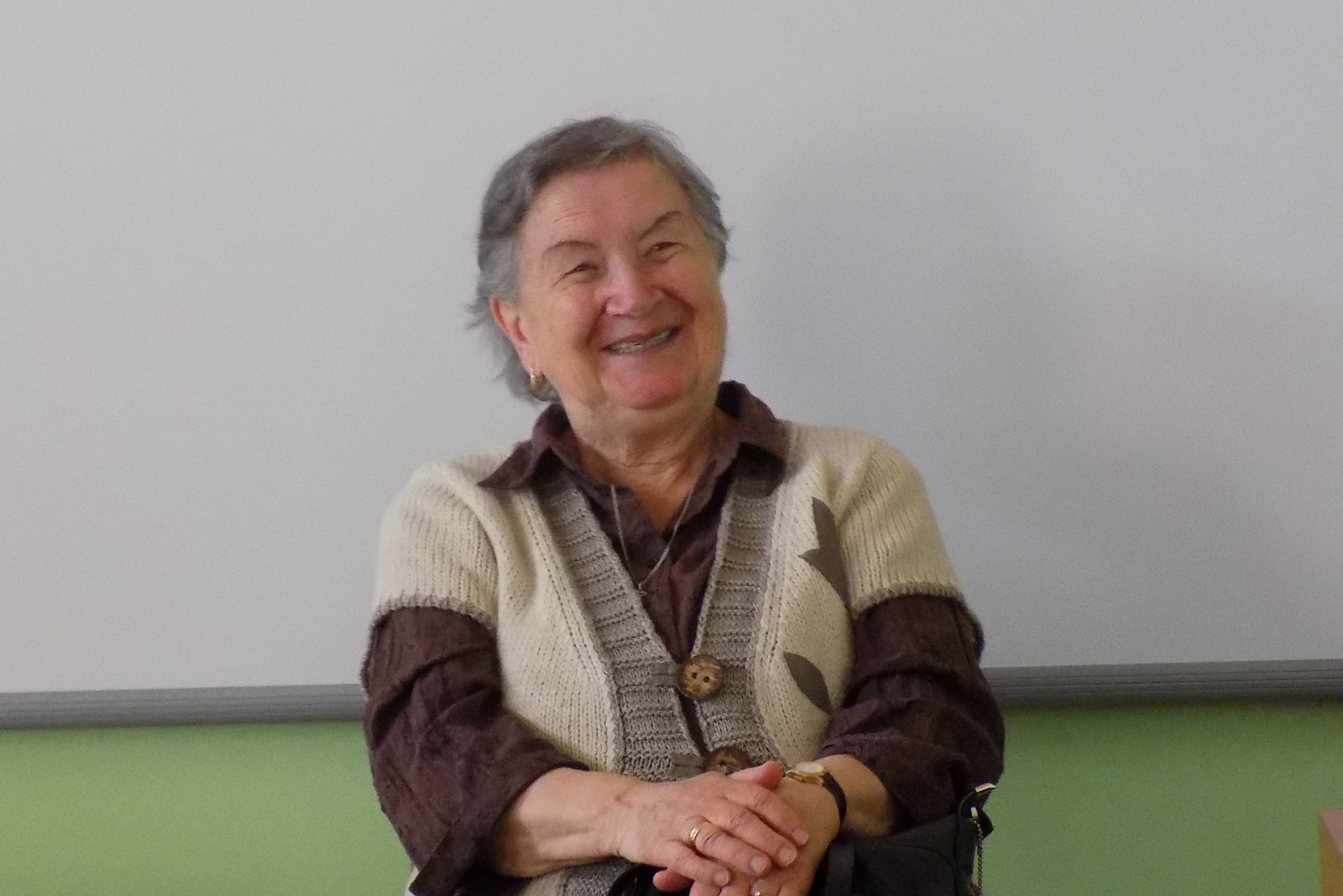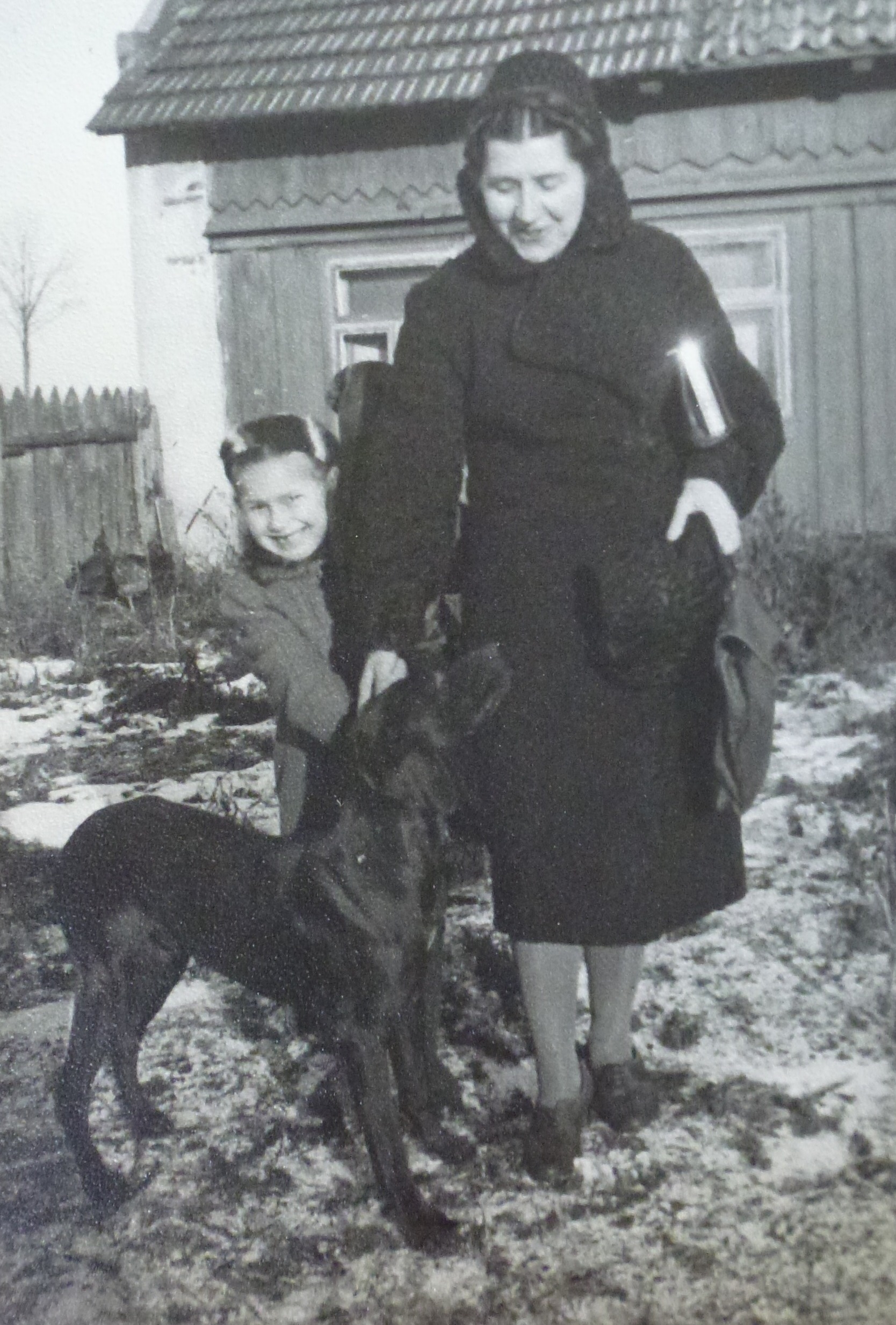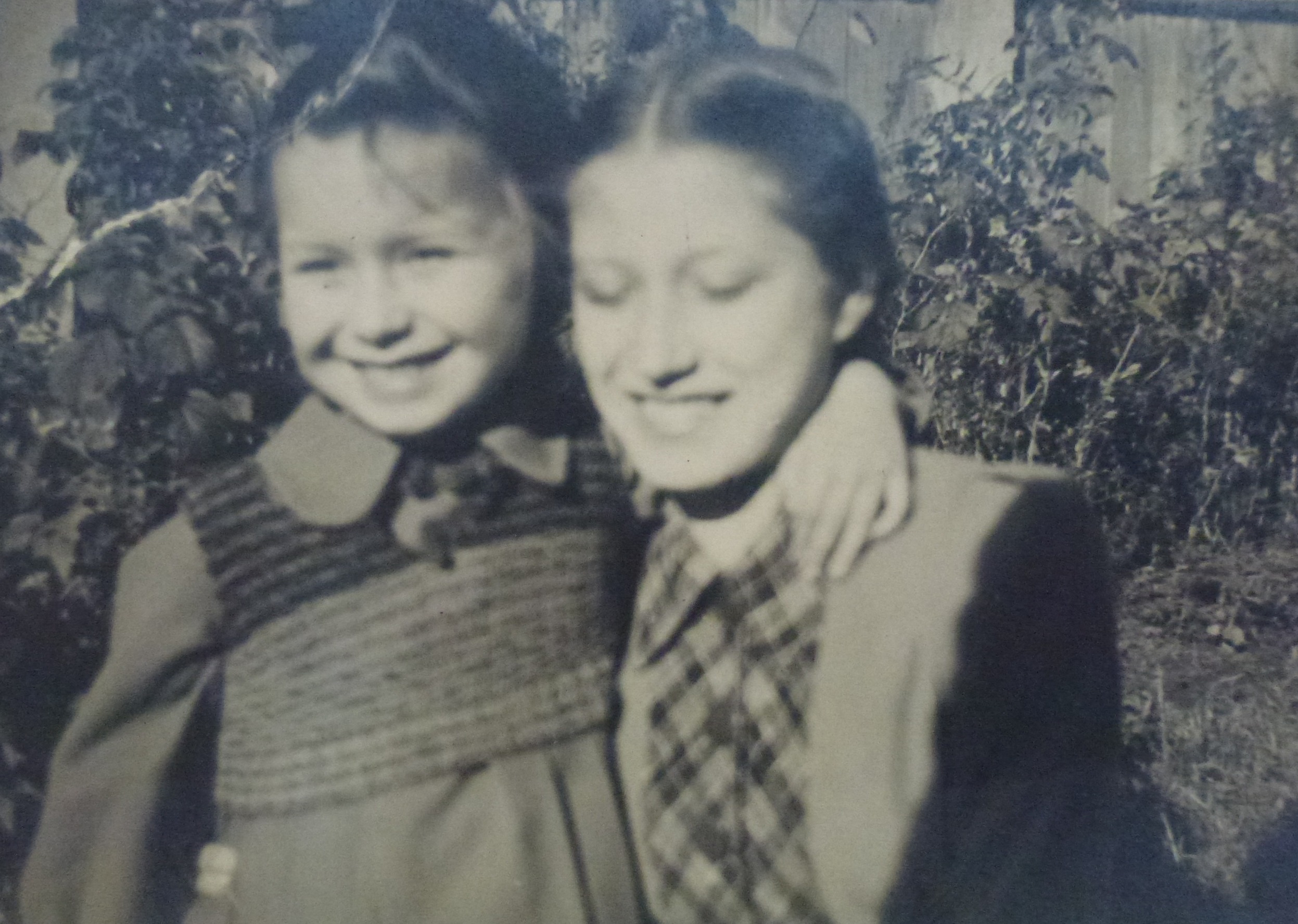My name is Alina Traczewska – Hazuka. I would like to share my memories of World War II.

I was born on 1st April 1936 in Dawidgródek (currently Belarus). My parents lived and worked as teachers there. I lived there for 2 years, then we moved to Pińsk for a short time and next to Łomża in 1938. It was the place where we had to face WWII.
My mum came from a big family – there were 12 siblings (9 girls and 3 boys). One of my mum’s brothers became a priest, the second one worked in an office, the third one graduated with a PhD in Philosophy. He was the head teacher of a Junior Secondary School in Włodzimierz. Unfortunately, he was murdered in Katyń by the Soviets.
My mum’s family was very poor. Once my mum stopped going to school because she did not have shoes. A teacher said it was a waste of a great talent and helped her. Mum started to help rich students with their schoolwork. Thanks to it she could come back to school and she did not have problems with clothes and shoes any more. Mum was a very good student and she passed her final exams and graduated with honours. She really wanted to work as a teacher. Unfortunately, there was a law in Upper Silesia forbidding a married woman to be a teacher.
When the war broke out dad went to Warsaw to fight for the Motherland. Then he moved to Grójec near Warsaw and he stayed there till the end of the war. We had no idea what was happening to him.

When the Germans came to Łomża, where we lived, they threw us out of our flat. We were not a rich family. We had a piano, a radio (it was not common at that time). Dad also had a library with the classics of Polish literature in leather covers. The Germans took all of our belongings. We had to move into a small wooden house on the outskirts of Łomża. Mum could speak German so she got a good job, which helped us survive.
In 1942 I was 6 and I went to school. It was a secret school because mum did not want me to attend the German one. We had lessons at our teacher’s house. I remember that one day when I was coming back from my lessons I dropped all the books which I kept under my coat. Suddenly, I saw an SSman passing by. I was scared because I could have been punished for the books. Fortunately, he helped me, stroked my head and said in German: “Go home girl”.
My sister had to hide not to be sent to Germany to work. She succeeded and she was not sent there. After the war she passed her secondary school final exams in Rzeszów. Then she graduated from the Economy University in Wrocław. She stayed at university working an a professor’s assistant.
My memories from war include air raids, which took place from 10 p.m. to 2 a.m. In the morning I used to go with my sister to check the bomb craters. The Allies threw napalm from the planes. We lived on the outskirts. I remember that in August 1945 after such a raid everything was burning, the ground was hot.
One day I went with my mum to her sister who was a teacher. We wanted her to come to Łomża. It was my first time at the battlefront. I could hear the bullets over our heads. I could feel the heat of falling bombs. I was 8 years old and it was a horrible experience.
I remember how Germans placed Jews in Ghetto in Łomża. I saw when they took my friend from a nursery school. I liked her very much but I never saw her again. That was horrible.
Once a Jewish couple came to my mum and asked her to hide their sons. They knew they would die but they wanted to protect their children. My mum sent these boys to her friends who lived in the country. Their parents were killed by the Germans but they survived.
The Jews were murdered. Germans took them to the forest, made them dig hole and shot them. Not all of them died at once.
In 1943/44 the Russians were approaching Łomża. There were more and more air raids and this situation lasted till the end of August 1944. Then the Germans started to retreat from Łomża. When the Russians came to Poland everything changed. They told us to leave the house and the city (not further than 30 km from the city). The evacuation was supposed to last for two weeks but it lasted up to seven months.
We came back to our house in Łomża but it was not there. Everything was destroyed. My mum’s friend, a teacher, took us to her flat. Soon after that mum got a letter from her sisters and a brother who was a priest. They helped mum get a job.
At the beginning of July 1945 we moved to Jedlicz near Jasło. My uncle was a priest there, substituting a severely ill priest. I stayed there for a year. I went to school to class 3. My mum found out that there is a lot of work for teachers in Racibórz, Upper Silesia. My aunt’s friend was a school inspector in Racibórz.
In January 1946 my mum went to Racibórz. I joined her in July 1946. Dad came back from the war. We met him. He got a job in Jelenia Góra. We were planning to join him there. Unfortunately he got ill and died in a hospital in Kraków.

Many years after the war something amazing happened. I was at my university in Wrocław checking my timetable. A young man approached me and asked about my name, surname and about my family. It was one of the boys saved by my mum (his name was Piotr Gruszewski). After some time he came to my mum and thanked for saving his life.
I still live in Racibórz. 80% of the city was damaged by the Russians, who put fire into houses. The Germans saw the Russians approaching and they blew up the bridge. However, the Russians managed to get to the city but the Germans were not there any more.
The war influenced my life a lot: it took away my dad, my best friend. It was a terrible life and the memories are very painful.
I have lived in Racibórz since July 1946. I got married in 1958. I have got 3 daughters, 2 granddaughters and 3 grandsons.
There is a saint priest in my family – bishop Józef Sebastian Pelczar. He was my mum’s uncle. My mum saw him in 1920 for the last time. He died in 1924 and was canonized in 2003 in Rome by John Paul II.